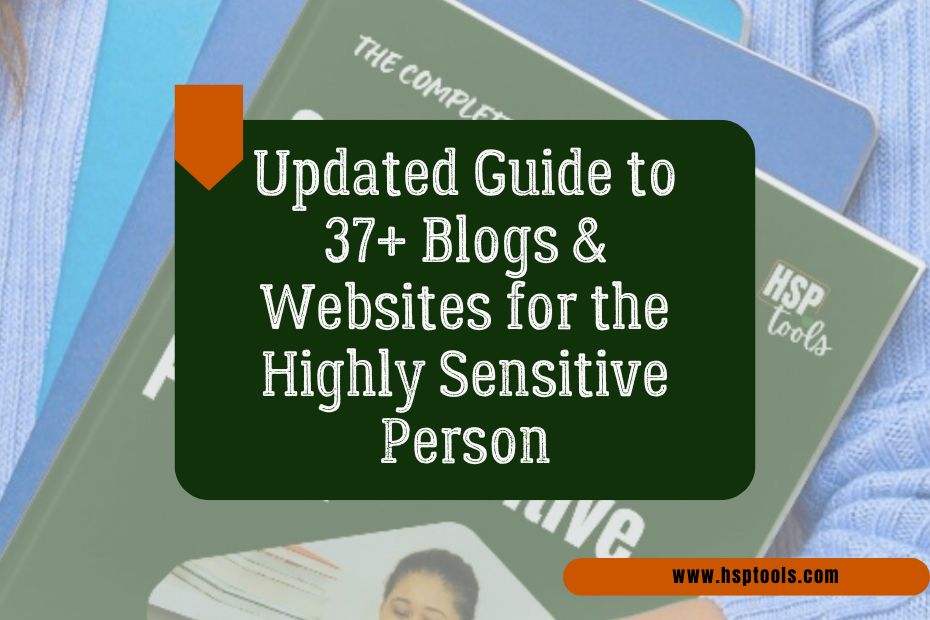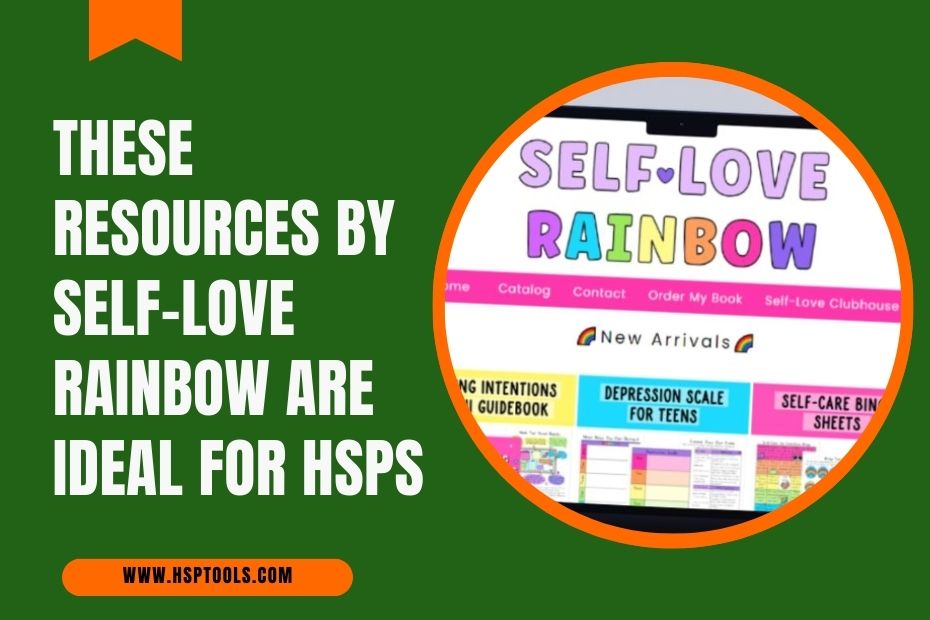Highly Sensitive People and Depression: 10 Unique Strategies to Protect Your Mental Health
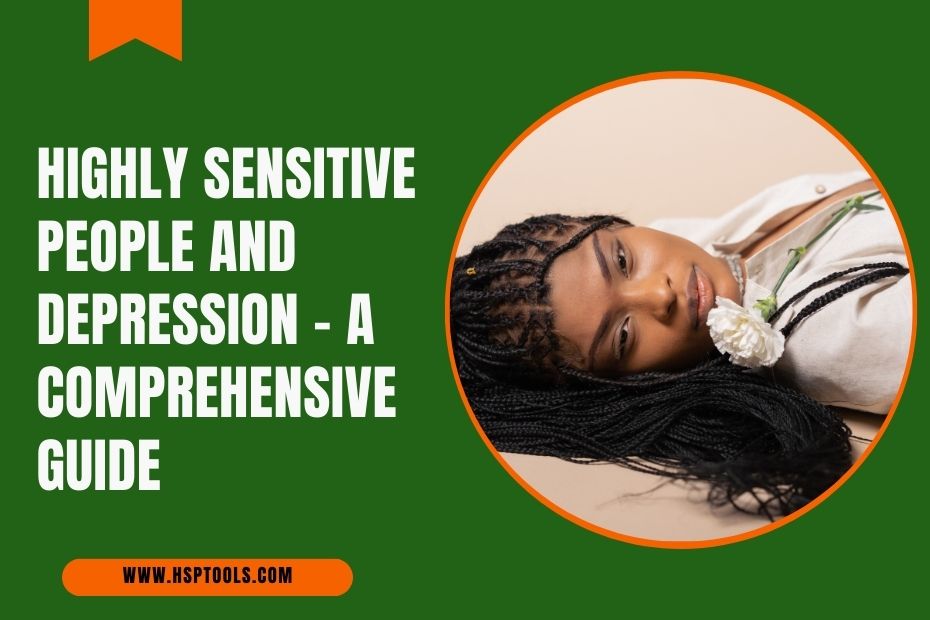
If you identify as a Highly Sensitive Person (HSP), you may already be familiar with the overwhelming emotions, deep empathy, and heightened sensory awareness that come with your sensitivity.
But another vital topic often lurks in the background for many: Highly Sensitive People and depression.
Studies have found that people with high sensitivity are more susceptible to depression and other mental health challenges — not to say that being an HSP is a weakness or that it inevitably leads to depression.
However, the unique way you experience the world—your heightened awareness of external stimuli and internal emotions—can make you more vulnerable to stress and emotional fatigue.
Understanding the connection between HSP traits and depression is key to maintaining your mental health.
This in-depth article dives deep into Highly Sensitive People and Depression, exploring the latest research, reasons why HSPs are at risk and strategies to prevent and manage depressive symptoms.
It also offers guidance on when and how to seek professional help.
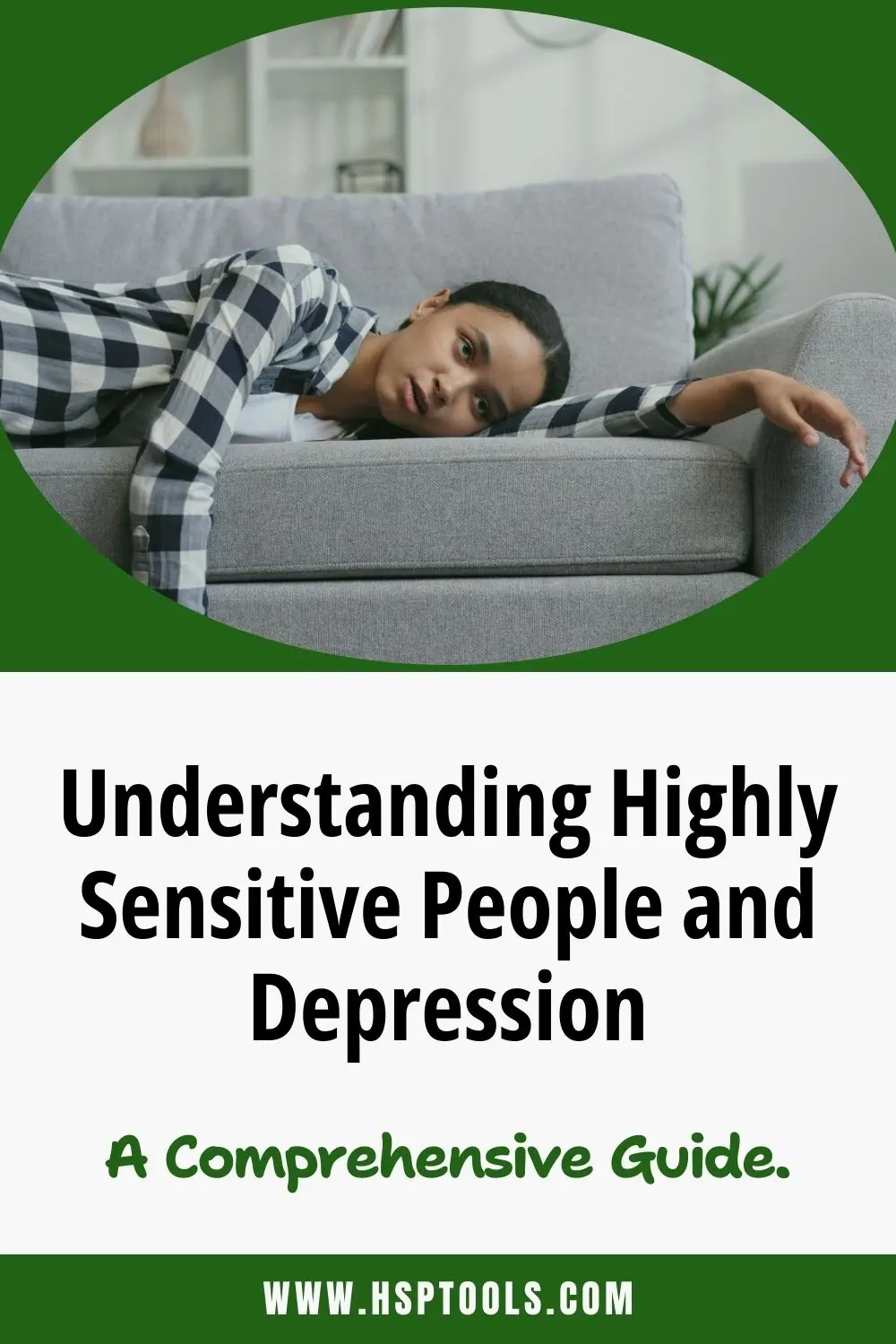
What Is High Sensitivity?
Before we can explore the connection between high sensitivity and depression, it’s essential to understand what it means to be a Highly Sensitive Person.
Dr. Elaine Aron, a psychologist and one of the leading researchers on high sensitivity, first coined the term “Highly Sensitive Person” (HSP) in the 1990s. Through her research and recent developments, we now know that about 20-30% of the population has a trait called Sensory Processing Sensitivity (SPS).
People with this trait process information more deeply, are more attuned to subtleties in their environment and are often more emotionally reactive. (Acevedo et al., 2018)
As an HSP, you might notice that you’re easily overwhelmed by bright lights, loud noises, or strong smells. You might also find that social situations drain your energy more quickly, and you often need more downtime to recharge.
You are also highly empathic, meaning that you absorb the emotions of others around you and feel them deeply.
This heightened sensitivity is not a flaw—it’s how your brain is wired. And while high sensitivity can be a gift, enabling you to experience beauty and joy more deeply, there’s a flip side.
This increased awareness and emotional depth can sometimes lead to feelings of overwhelm, anxiety, and even depression.
The Link Between Highly Sensitive People and Depression – 5 Probable Causes
Research has shown that people with Sensory Processing Sensitivity are more likely to experience mood disorders, including depression.
A study published in Personality and Individual Differences found that people with high sensitivity report higher levels of emotional reactivity, which can lead to increased stress levels. Over time, this heightened stress can take a toll on your mental health. (Lionetti et al., 2018)
Below are five probable causes of depression in Highly Sensitive People.
1. Emotional Overload and Burnout
HSPs tend to feel things more intensely, which means that emotional overload is a common experience.
If you’re constantly processing information deeply, reacting strongly to external stimuli, and absorbing the emotions of others, you might feel emotionally exhausted more often than non-HSPs.
This emotional exhaustion can lead to burnout, a state where you feel mentally and physically drained, which is a significant risk factor for depression.
2. Sensory Overstimulation
Another factor contributing to depression in HSPs is sensory overstimulation.
You might notice that you’re more sensitive to your surroundings than most people and stimulants like bright lights, loud sounds, and chaotic environments can overwhelm your nervous system.
While non-HSPs can brush off such stimuli, you may find yourself feeling frazzled, stressed, or anxious in these situations. This overstimulation can lead to chronic stress, a well-known contributor to depression.
3. Increased Sensitivity to Rejection
Highly Sensitive People are often more attuned to social dynamics and interpersonal relationships, which means they may be more affected by rejection, criticism, or conflict.
A small argument or a critical comment can feel much more painful to you than it would to someone less sensitive.
Research published in Clinical Psychological Science suggests that HSPs are more prone to developing depression when faced with negative social experiences, especially if those experiences involve perceived rejection or criticism.
4. High Levels of Empathy
As an HSP, your empathy allows you to connect deeply with others. But being highly empathic also means that you can take on the emotional burdens of those around you.
If someone close to you is going through a tough time, you may feel their pain as if it were your own. Over time, this can lead to what some researchers call “empathic distress,” which can contribute to feelings of sadness, hopelessness, and depression.
5. Early Life Experiences and Vulnerability
HSPs may be more vulnerable to depression due to childhood experiences.
According to a study published in the Journal of Research in Personality, HSPs with adverse childhood experiences, such as trauma or neglect, are at a higher risk of developing depression later in life.
The deep emotional processing of HSPs can mean that these early experiences leave a lasting imprint, making it harder to develop resilience against stress and emotional pain as an adult.
Latest Research on HSPs and Depression
Ongoing research continues to shed light on the relationship between high sensitivity and mental health. Some key studies have helped us understand how the brains of HSPs operate differently and why this might increase susceptibility to depression.
One recent study published in Social Cognitive and Affective Neuroscience used brain imaging to observe the neural responses of HSPs. The researchers found that HSPs had increased activation in areas of the brain associated with empathy, emotion regulation, and awareness of sensory stimuli. (Acevedo et al., 2014)
This heightened brain activity helps explain why HSPs are more attuned to their environment and the emotions of others—but also why they are more prone to stress and emotional dysregulation, which can lead to depression.
Another study, featured in the journal Clinical Psychological Science, examined the link between high sensitivity and depressive symptoms in young adults. The researchers found that those who scored high on measures of Sensory Processing Sensitivity were more likely to experience depressive symptoms, especially in response to stressful life events.
The study emphasized the importance of coping mechanisms and emotional regulation strategies in reducing the risk of depression among Highly Sensitive individuals.
10 Unique Coping Mechanisms for Highly Sensitive People and Depression
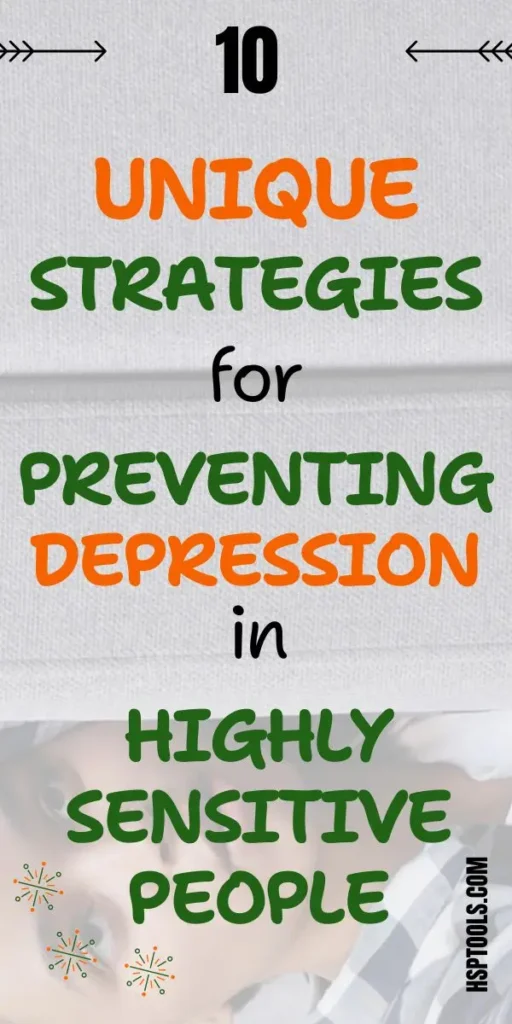
1. Create an Emotional Buffer Zone with “Energy Shielding”
Highly Sensitive People are often deeply affected by the emotions of others, sometimes absorbing negative energy without realizing it. “Energy shielding” is a mental practice where you visualize yourself surrounded by a protective barrier that keeps external negativity at bay.
Before entering a stressful situation—such as a crowded space or an intense conversation—imagine yourself in a bubble or shield of light that deflects negative energy.
This technique helps you maintain emotional boundaries and protects your sensitive nervous system from becoming overwhelmed by the energy of others.
While it might sound abstract, many HSPs find this form of mental visualization a powerful way to ground themselves in difficult environments.
Some people personalize their shields with colours or textures they associate with calmness, such as imagining a soft blue light or a barrier made of gentle waves.
2. Engage in “Forest Bathing” for Sensory Reset
Spending time in nature is a well-known relaxation technique, but “forest bathing” (also known as shinrin-yoku) takes it a step further.
This practice, originating in Japan, involves immersing yourself in a natural environment and mindfully connecting with the sights, sounds, and smells around you. It’s not just about walking in the woods—it’s about fully engaging your senses to reset and recharge.
Studies have shown that forest bathing can lower cortisol levels (the stress hormone), reduce blood pressure, and improve overall mental health.
For HSPs, who are particularly sensitive to environmental stimuli, forest bathing can be a way to calm sensory overload. Even if you don’t have access to a forest, spending time in a garden, park, or any quiet outdoor space where you can deeply connect with nature can provide a similar calming effect.
Try to focus on the subtle rustling of leaves, the texture of tree bark, or the fresh smell of earth. These natural stimuli can help soothe your sensitive nervous system and prevent burnout.
3. Practice “Sensory Dieting” to Prevent Overwhelm
Much like how we manage food intake with a diet, “sensory dieting” involves managing the sensory stimuli you encounter throughout the day. Instead of avoiding sensory overload only when it becomes unbearable, plan your sensory exposure proactively.
Sensory dieting includes scheduling moments of intentional sensory rest after particularly stimulating experiences (like a busy workday or a social gathering).
You can “balance” sensory-rich activities with quiet, low-stimulus moments—like spending time in silence or engaging in calming activities such as listening to soft music or enjoying aromatherapy.
Keep a daily log of how different sensory environments affect your energy levels and mood. Use this information to design your days more mindfully, incorporating moments of sensory downtime between high-stimulation periods.
This helps prevent the cumulative stress that often leads to depression in HSPs.
4. Develop a “Creative Transmutation Ritual”
Many HSPs possess a strong connection to their creative side, making creativity an ideal outlet for emotional processing.
A “creative transmutation ritual” involves channelling your overwhelming emotions into an artistic or creative project whenever you feel on the verge of emotional overload.
Whether through painting, journaling, dancing, or playing music, this ritual allows you to convert emotional intensity into something tangible and meaningful.
By regularly engaging in creative expression, you can prevent depressive emotions from festering.
And, you don’t have to be an artist to benefit from this practice. Approach your creative activity as a form of release rather than perfection. Create to express your feelings rather than producing something “beautiful” or “perfect.”
Over time, this ritual can become a reliable tool for managing emotional distress, giving you a constructive way to process heavy emotions without letting them take control.
5. Incorporate “Body Scanning with Tactile Comfort”
HSPs are not just emotionally sensitive; they are also physically sensitive, often feeling more acutely aware of sensations in their bodies.
Body scanning is a mindfulness technique where you mentally scan your body for areas of tension or discomfort. To take this further, combine it with tactile comfort by incorporating soft textures or weighted items (such as a weighted blanket or soft fabric) to help calm your nervous system.
For example, while lying down with a soft, weighted blanket, you can slowly guide your awareness through each part of your body, noticing any areas of tension. As you release that tension, allow your blanket’s calming weight and softness to relax your body.
The gentle pressure helps reduce stress hormones and can create a sense of physical and emotional safety, which releases built-up stress before it spirals into depressive feelings.
6. Schedule “Micro-Retreats” for Regular Emotional Maintenance
Instead of waiting for a major breakdown before taking time for yourself, build “micro-retreats” into your schedule regularly.
A micro-retreat is a short, scheduled period (even as little as an hour or two) where you completely disconnect from external demands and immerse yourself in self-care. These retreats are meant to be small, manageable doses of solitude and relaxation that help prevent emotional buildup.
During a micro-retreat, you can engage in whatever activities bring you the most comfort and joy, such as reading, taking a warm bath, sipping tea while listening to calming music, or practising slow stretches.
The aim is to treat it as a mini-escape, allowing yourself to disconnect from your responsibilities and recharge emotionally.
By committing to these small yet frequent breaks, you can help prevent the kind of emotional overload that contributes to depression in HSPs.
7. Create a “Sensory Haven” in Your Home
As an HSP, having a dedicated space to retreat from the sensory overload of everyday life is essential.
A “sensory haven” is a corner or room in your home specifically designed to calm your senses and ground you. This space should be free of harsh lighting, loud sounds, and clutter, and filled with items that bring comfort and relaxation.
Think soft pillows, gentle lighting (warm, dimmable lamps or fairy lights), calming scents (lavender or chamomile), and soothing textures like soft blankets or rugs.
Regularly spending time in your sensory haven can help prevent stress from building up to the point of causing depression. You can also personalize the space with elements that resonate with your sensitivity, such as calming artwork, plants, or even sounds of nature playing softly in the background.
8. Practice “Selective Exposure” to Emotional Media
HSPs are particularly sensitive to emotional content, whether in movies, books, music, or news. What you consume media-wise can have a lasting impact on your emotional state, sometimes amplifying feelings of sadness, fear, or stress.
“Selective exposure” involves curating your media consumption to avoid emotionally triggering or overwhelming content. This means being intentional about what you read, watch, or listen to.
For example, you might choose to avoid violent or emotionally draining films, preferring uplifting or gentle stories that resonate with your sensitivity. When it comes to the news, limit your exposure to distressing headlines, or only read positive news stories when you’re feeling vulnerable.
Some HSPs find it helpful to set a “media detox” day once a week where they disconnect from all forms of media and focus on activities that nurture their mental and emotional well-being.
By practising selective exposure, you can protect yourself from absorbing unnecessary emotional negativity and maintain a more balanced emotional state. This proactive approach ensures you’re nourishing your sensitive spirit with content that supports, rather than depletes, your mental health.
9. Use “Sensory Anchoring” in Stressful Situations
Sensory anchoring is a technique that involves grounding yourself in the present moment by focusing on a particular sensory experience.
For HSPs who often feel overwhelmed in stressful situations, anchoring yourself using one of your senses can help reduce anxiety and prevent emotional spiralling.
This technique is especially useful in situations where you can’t physically escape or retreat, such as a busy office, a social gathering, or a loud environment.
To practise sensory anchoring, choose one of your five senses—sight, sound, touch, taste, or smell—and focus on it intently.
For example, if you’re in a loud, overwhelming environment, try to find one soothing sound and direct your attention to it, like the hum of an air conditioner or the ticking of a clock. Alternatively, keep a small textured object like a smooth stone or a soft fabric in your pocket, and focus on its feel to help calm your senses.
This practice works by narrowing your focus, making the situation feel less overwhelming, and helping you stay grounded in the present.
By redirecting your attention to a single, calming sensory experience, you give your nervous system a chance to reset, preventing the buildup of stress that can lead to depression in HSPs.
10. Adopt a “Slow Living” Philosophy to Align with Your Natural Pace
Highly Sensitive People often find that the fast-paced nature of modern life—constant rushing, multitasking, and information overload—contributes to feelings of stress and overwhelm.
Embracing the “slow living” philosophy allows you to align your life more closely with your natural pace, giving you the space to breathe, process, and truly experience moments.
Slow living is about intentionally slowing down, whether it’s in how you work, eat, or engage with your daily activities. It encourages mindful attention to each task, allowing you to enjoy the process rather than rushing toward the outcome.
For example, rather than grabbing a quick snack on the go, sit down and savour your food, appreciating the textures and flavours. Or instead of constantly pushing yourself to be productive, you can create space for rest and downtime without guilt.
To start adopting a slow-living mindset, identify areas where you can reduce unnecessary pressure and take things slowly. Introduce rituals like slow mornings with a cup of tea or mindful walks without distraction.
For HSPs, slow living promotes a lifestyle that is more in tune with your sensitivity, reducing stress and helping prevent the onset of depression caused by living in perpetual overdrive.
How These Unique Mechanisms Address HSP Needs & Ultimately, Prevent Depression
When these alternative coping strategies are done right, they can help cut ties between Highly Sensitive People and Depression.
Here’s why they work:
- Energy Shielding helps HSPs establish emotional boundaries naturally and intuitively, using the power of imagination and visualization.
- Forest Bathing offers a powerful, sensory-immersive experience that counteracts overstimulation with the grounding effects of nature.
- Sensory Dieting encourages proactive planning and awareness, allowing HSPs to manage sensory inputs before they become overwhelming.
- Creative Transmutation Rituals channel emotional intensity into constructive expression, which prevents emotional buildup that could lead to depression in HSPs.
- Body Scanning with Tactile Comfort combines mindfulness with tactile soothing, addressing both physical and emotional aspects of sensitivity.
- Micro-retreats provide regular intervals of deep rest and restoration, which help to prevent emotional overload from accumulating.
- A Sensory Haven provides a dedicated, physical sanctuary designed to nurture your sensitivity, offering a safe escape from external chaos whenever needed.
- Selective Exposure mindfully controls the emotional impact of the media you consume, helping you maintain emotional balance and avoid unnecessary stress.
- Sensory Anchoring is a practical and immediate technique that helps HSPs to stay grounded during overwhelming moments, preventing emotional escalation.
- Slow Living encourages mindful engagement with life and reduces the stress of constantly rushing or multitasking, by aligning your lifestyle with your natural rhythm.
These methods offer a mix of practical and emotional care that resonates deeply with the HSP experience.
By integrating these practices into your life, you’ll be better equipped to maintain your emotional and mental well-being, reducing the risk of depression while celebrating the unique strengths of being a Highly Sensitive Person.
When to Seek Professional Help
Even with the best coping strategies in place, there may come a time when depression in HSPs feels overwhelming and unmanageable.
If you’re experiencing persistent feelings of sadness, hopelessness, fatigue, or a loss of interest in activities you used to enjoy, it’s important to reach out for professional help.
Psychotherapy, particularly Cognitive Behavioral Therapy (CBT), has been shown to be effective in treating depression.
Additionally, some HSPs may benefit from Dialectical Behavior Therapy (DBT), which focuses on emotion regulation and distress tolerance—both key areas for HSPs prone to emotional overwhelm.
Medication may also be recommended in some cases, particularly if you’re dealing with a severe or long-lasting depressive episode. If you’re concerned about how antidepressants might interact with your sensitivity, consider discussing alternative treatments that tend to have fewer side effects.
Don’t hesitate to seek professional help—there’s no shame in reaching out, and doing so can help you get back on track.
Explore our directory of HSP practitioners to find a professional best suited to your specific needs.
Final Word on Highly Sensitive People and Depression
As a Highly Sensitive Person (HSP), your heightened awareness, deep empathy, and capacity for profound emotional connection are invaluable strengths. But these same traits can leave you vulnerable to stress and, in some cases, depression.
By understanding the unique relationship between Highly Sensitive People and depression, you can take proactive steps to protect your well-being.
The strategies outlined in this article—like creating a sensory haven, practising energy shielding, engaging in forest bathing, and adopting a slow living mindset—are designed specifically for HSPs.
These methods go beyond the typical self-care practices, offering a more personalized approach to managing sensory and emotional overload.
By embracing these tailored coping mechanisms and building a support system that works for you, you can thrive as an HSP without letting depression take hold. If at any point you feel that depression is becoming overwhelming, don’t hesitate to seek professional help.
Your mental health deserves attention and care!
Bottomline: your sensitivity is not a flaw—it’s a unique and valuable part of who you are. With the right tools in place, you can navigate the challenges of being an HSP while celebrating its many strengths.





